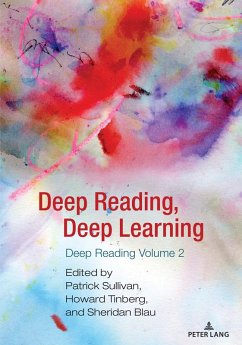
Achieving Equity in School Writing (eBook, ePUB)
Causes and Cures for Opportunity and Achievement Gaps in a Key Twenty-First Century Skill
Versandkostenfrei!
Sofort per Download lieferbar
Statt: 36,95 €**
30,95 €
inkl. MwSt.
**Preis der gedruckten Ausgabe (Broschiertes Buch)
Alle Infos zum eBook verschenkenWeitere Ausgaben:

PAYBACK Punkte
15 °P sammeln!
Writing is a critical skill people need to survive and prosper in the modern economy. But most people fail to become competent writers. Those who succeed (at least, in English-speaking countries) are predominantly White, upper middle class, and female. These achievement gaps are primarily the result of opportunity gaps - in other words, they represent the failure of our educational systems to provide equitable instruction. This book examines why so many students fall behind and analyzes what teachers and schools can do to help them succeed. It is for anyone who wants to know, in detail, what m...
Writing is a critical skill people need to survive and prosper in the modern economy. But most people fail to become competent writers. Those who succeed (at least, in English-speaking countries) are predominantly White, upper middle class, and female. These achievement gaps are primarily the result of opportunity gaps - in other words, they represent the failure of our educational systems to provide equitable instruction. This book examines why so many students fall behind and analyzes what teachers and schools can do to help them succeed. It is for anyone who wants to know, in detail, what modern educational research tells us about the causes and cures for writing achievement gaps, and presents a theory of action designed to help educators and policymakers understand what needs to happen if all students are to become competent writers. Educational statistics demonstrate an ongoing tragedy, in which boys, students from poor families, and members of minority groups are often discouraged, provided substandard education, and then treated as failures. However, there is no magic bullet. Equitable writing instruction happens when schools motivate all students to excel, provide them the knowledge they need to succeed, give them time and space to think and to write, teach them effective strategies to manage their work, and make sure that they master foundational reading and writing skills.
Dieser Download kann aus rechtlichen Gründen nur mit Rechnungsadresse in A, D ausgeliefert werden.













